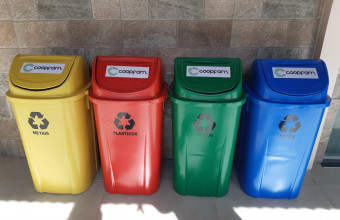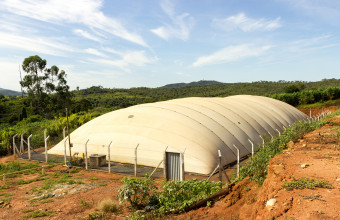Ceriluz – a Rio Grande do Sul energy generation and distribution cooperative – is ready to participate in a market with the potential to move US$ 50 billion by 2030. The entity was accredited by the United Nations to negotiate carbon credits in the international market from two new small-scale projects: the Linha Onze plants, a small hydroelectric power plant (SHP) with installed potential of up to 30 megawatts, and the Augusto Pestana plant, classified as a Hydraulic Power Plant (CGH) with potential to generate up to 1 MG of electricity.
Precisely because they are smaller, these plants were built in a sustainable way, without the need to flood large areas, preserving the natural habitat of the species that live near them. They generate clean and renewable energy, capable of supplying the homes of about 30 thousand families. An installed potential that can still be transformed into a carbon credit (a unit of measurement that is equivalent to not emitting one ton of greenhouse gases into nature).
In practice, the carbon credits generated by Ceriluz can be negotiated with countries and/or companies that are unable to meet their CO2 emission reduction targets. They can buy these assets to offset the impact of their activities on nature.
It is worth noting: carbon credits were created precisely to stimulate a new economy based on the rational use of natural resources, respect for human beings, and the fight against global warming.
PREVIOUS EXPERIENCE
This will not be the first time that Ceriluz will negotiate carbon credits with the international market. In 2007, the cooperative received the amount of R$ 600 thousand referring to the sale of carbon credits retroactive to the energy production of Usina José Barasuol, between the years 2004 – when it started operating – and May 2007. At the time the Cooperative sold its credits to a Dutch company.
After the accreditation with the UN, Ceriluz became part of a select list of 17 power generation companies qualified to sell carbon credits abroad. The main challenge faced by the cooperative – in this new accreditation and in the previous experience – was the quantification of the carbon credits generated in its activities. To optimize this process, the cooperative decided to hire one of the main consulting firms in this new market: WMF Energy.
It is worth noting: the work of qualifying Ceriluz’s projects is already in its final stage, preparing the credits for sale. The expectation is that the first financial results of these transactions will occur in early 2023.





